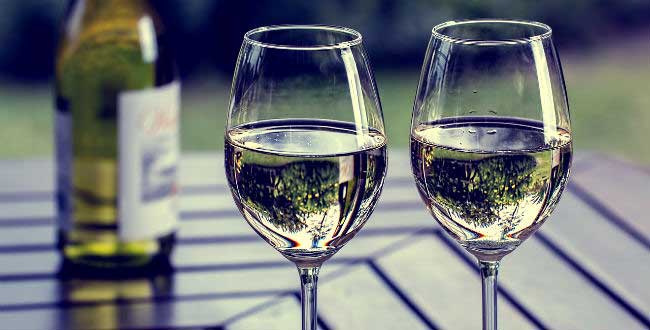Are They Compatible?
Intermittent fasting (IF) is one of the leading health trends today due to its proposed health benefits, including weight loss, fat oxidation, and reduced inflammation. (1)
This dietary pattern involves alternating cycles of fasting and eating. However, unlike traditional diets, no foods or beverages are banned during the eating window.
But, what about alcohol?
Is it also acceptable or will it diminishes any of the benefits associated with IF.
In this article we will examine how alcohol affects intermittent fasting and whether certain alcoholic beverages are better than others.
Alcohol and Fat Oxidation
Intermittent fasting has been shown to boost fat oxidation, thus decreasing your body fat percentage (2)
Yet, in some studies, alcohol intake has been shown to block fat breakdown.
In fact, one study in 19 adults, ingesting an alcohol-rich meal resulted in significantly reduced levels of fat breakdown 5 hours after eating, compared with a meal rich in protein, fat, and carbs. (3)
Alcohol can also lower your inhibition and stimulate overeating, which can lead to weight gain over time. (4)
In observational studies, excessive alcohol consumption was associated with increased levels of body fat compared to their moderate drinking counterparts. (5, 6)
Summary: Alcohol intake may slow fat oxidation. While excessive drinking may increase your body fat percentage, light to moderate drinking does not show the same effects.
Alcohol and Weight Gain
Many people undertake intermittent fasting as a weight loss method.
Alcohol is calorie-dense, with just 1 gram proving 7 calories. Therefore, just one drink can contribute several hundred more calories to your total daily intake. (7)
Research is somewhat mixed on whether alcohol intake promotes weight gain.
In fact, several observational studies show that moderate drinking has little to no effect on weight gain. (8)
However, heavy drinking — defined as 4 or more drinks per day for men and 3 or more per day for women — is linked to an increased risk of weight gain and obesity. (9, 10)
Summary: Although alcohol is calorie-dense, moderate intake may reduce your risk of weight gain. On the other hand, excessive drinking may increase your risk.
Excessive Alcohol and Inflammation
Intermittent fasting has been shown to reduce inflammation in your body.
Nonetheless, alcohol can promote inflammation, counteracting the effects of IF.
Chronic inflammation is now looked at as the gateway to various chronic illnesses, such as heart disease, type 2 diabetes, and certain cancers. (11)
Additionally, research shows that the inflammation from excessive drinking may lead bacterial overgrowth, leaky gut and an imbalance in gut bacteria. (12, 13, 14)
High alcohol intake can also overwhelm your liver, decreasing its ability to filter out potentially harmful toxins. (15)
Together, these effects on your gut and liver may promote inflammation throughout your body, which over time can lead to organ damage (16)
Summary: Excessive alcohol intake can cause widespread inflammation in your body, counteracting the effects of intermittent fasting and potentially leading to diseases.
Alcohol and Breaking Your Fast
During a fast, you’re supposed to avoid all foods and beverages for a set amount of time.
Specifically, intermittent fasting is meant to promote hormonal and chemical changes — such as fat oxidation and cellular repair — that may benefit your health.
And because alcohol contains calories, any amount of it during a fasting period will break your fast.
That being said, it is perfectly acceptable to drink in moderation during your eating periods.
Alcohol and Cellular Repair
During fasting periods, your body initiates cellular repair processes like autophagy, in which old, damaged proteins are removed from cells to generate newer, healthier cells. (17)
This process may reduce your risk of cancer, promote anti-aging effects, and at least partly explain why short spans of calorie restriction has been shown to increase lifespan. (18)
Recent animal studies demonstrate that chronic alcohol intake may inhibit autophagy in liver and fat tissue. However, keep in mind that human studies are now needed to support this theory. (19, 20)
Summary: As alcohol contains calories, drinking any amount during a fasting period will break your fast and may prevent the cellular repair processes.
Better Alcohol Options
As alcohol breaks your fast if consumed during a fasting period, it’s recommended to only drink during your designated eating window. (21)
You should also keep your intake in check. Moderate alcohol consumption is defined as no more than 1 drink per day for women and no more than 2 per day for men. (22)
While intermittent fasting doesn’t have strict rules for food and beverage intake, some alcohol choices are healthier than others and less likely to counteract your dietary regimen.
Healthier options include dry wine and hard spirits, as they’re lower in calories. You can sip these on their own or mix them with club soda or seltzer water.
To limit your sugar and calorie intake, avoid mixed drinks and sweeter wines.
Summary: During intermittent fasting, it’s best to drink alcohol in moderate amounts and only during your eating periods. Healthier options include dry wine and hard spirits.
The Bottom Line
If consumed in moderation and only during eating periods, alcohol is unlikely to hinder intermittent fasting.
However, it’s very calorie-dense and may slow fat oxidation.
Additionally, excess drinking can promote chronic inflammation and other chronic health issues.
To cut back on excess calories and sugar, choose dry wine or hard spirits rather than mixed drinks.


